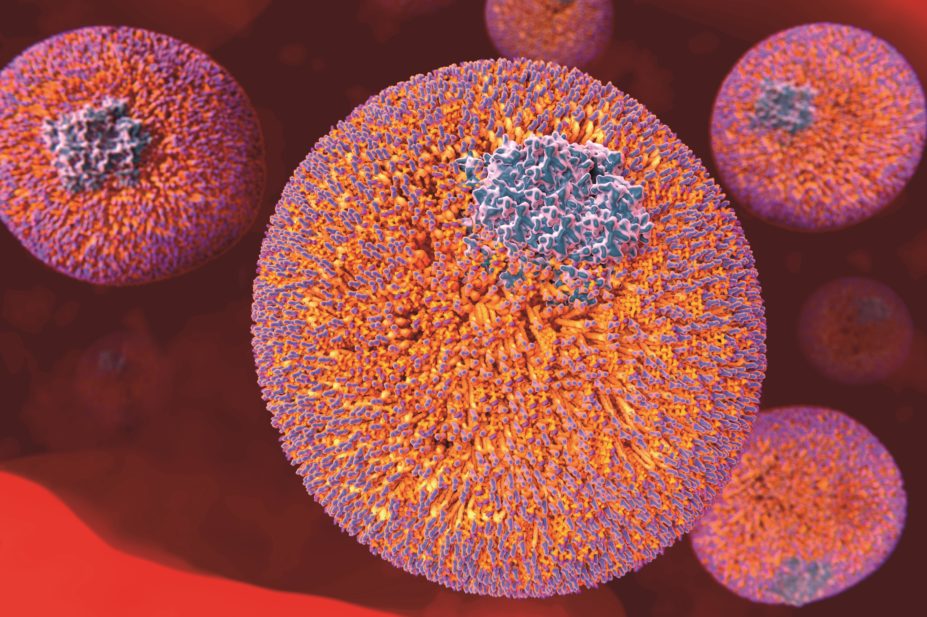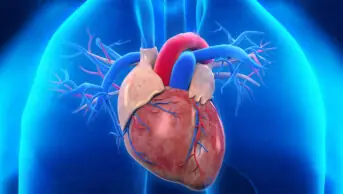
Science Photo Library / Alamy Stock Photo
It may not always be beneficial to intensify statin treatment in patients with ischaemic heart disease, a study suggests.
The research found that achieving a low-density lipoprotein (LDL) level of 100mg/dL (2.6mmol/L) or below significantly reduced the risk of cardiovascular outcomes, while treating patients to below 70mg/dL (1.8mmol/L) provided no additional protection.
The study, published in JAMA
[1]
(online, 20 June 2016), was carried out in 2009–2013 and used data from a healthcare provider database in Israel on 31,619 patients with stable ischaemic heart disease with at least 80% adherence to statin treatment.
The researchers recorded the first LDL level in patients after they had received statin therapy for at least a year and grouped them into low LDL (<70.0 mg/dL; n=9,086), moderate LDL (70.1–100.0mg/dL; n=16,782) and high (100.1–130.0mg/dL; n=5,751).
During a mean follow-up of 1.6 years, the results showed that patients in the moderate-LDL group had an 11% lower risk of a major adverse cardiac event (MACE) or death than patients in the high-LDL group. But there was no significant difference in the rate of outcomes between patients with low and moderate-LDL levels. There were 9,035 adverse outcomes during the study period.
“This is among the largest cohorts to study this issue, and it suggests that treatment with statins is very important for patients with ischaemic heart disease,” says study author Ran Balicer, director of the Clalit Research Institute in Tel Aviv, Israel, which conducted the research.
“Yet the study also suggests that lower is not always better – not all high-risk patients should be targeted for lower values of LDL, below 70mg/dl,” he adds.
The researchers also point out that their findings contradict those from several randomised trials that have suggested that targeting lower LDL levels improves outcomes.
For example, a meta-analysis published in The Lancet in 2010[2]
found a 15% reduction in MACE in patients treated with intensive statin therapy compared with lower-intensity therapy. However, the researchers say the analysis did not take into account the rate of comorbidities or polypharmacy among the patients. They add that the risk of adverse events with intensified statin treatment is also an important consideration for prescribers.
The team note, however, that their study only included patients with stable ischaemic heart disease in a community setting and as a result the results may not be applicable to patients with a recent cardiac event. “Our results do not provide support for a blanket principle that lower LDL-cholesterol is better for all patients in secondary prevention,” they conclude.
Peter Weissberg, medical director at the British Heart Foundation, says the findings would need to be confirmed in a longer-term study. “The findings in this paper question the notion that the lower the cholesterol levels achieved with statins the better it is for patients with ischaemic heart disease. However, it does not show that statins are ineffective.
“There are a number of reasons why the conclusions from this research may be wrong and longer follow-up of the patients may provide a different result,” he adds.
Current guidelines from the European Society of Cardiology recommend targeting LDL levels below 70mg/dL. National Institute for Health and Care Excellence guidelines for secondary prevention of cardiovascular disease recommend a 40% reduction in non high-density lipoprotein, rather than offering specific LDL targets.
References
[1] Leibowitz M, Karpati T, Cohen-Stavi CJ et al. Association between achieved low-density lipoprotein levels and major adverse cardiac events in patients with stable ischemic heart disease taking statin treatment. JAMA 2016. doi: 10.1001/jamainternmed.2016.2751
[2] Baigent C, Blackwell L, Emberson J et al. Cholesterol treatment trialists’ (CTT) collaboration. Efficacy and safety of more intensive lowering of LDL cholesterol: a meta-analysis of data from 170,000 participants in 26 randomised trials. The Lancet. 2010;376(9753):1670–1681. doi: 10.1016/S0140-6736(10)61350-5


